How to Train Betta Fish
When you are asked by others, “Which fish is the most popular freshwater pet fish in the world today?” The answer seems to be obvious and easy to see, the betta fish.
The betta fish is a small tropical fish, 5 to 8 cm in length. Like many ornamental fish, betta fish have very rich colors, including red, white, green, blue, yellow, and other colors, in addition, of course, there are miscellaneous varieties. Betta fish are most notable for having long streamlined fins, like two decorative ribbons, when they swim in fish aquariums.
The two long fins on both sides of their bodies flutter in the water, like an elegant lady at a dinner party being invited to dance a round dance, it is really beautiful! Because of this, betta fish may become one of the most aesthetically pleasing fish to choose for your aquarium.
The betta fish is just like its other name, the fighting fish, and they are usually very aggressive compared to other fish. If you keep two male fighting fish in one tank, then soon, you will see only one fighting fish left. So many people will get expert advice at the very beginning of keeping a betta fish – keep a separate betta fish in the tank. This characteristic of betta fish does not prevent them from becoming the most popular pet fish, but this naturally aggressive characteristic adds to their charm. What makes betta fish better pets is that each fish has its unique personality.
Next, you will see in this article how you train this naturally aggressive fish. And what do you need to keep in mind to train betta fish well?
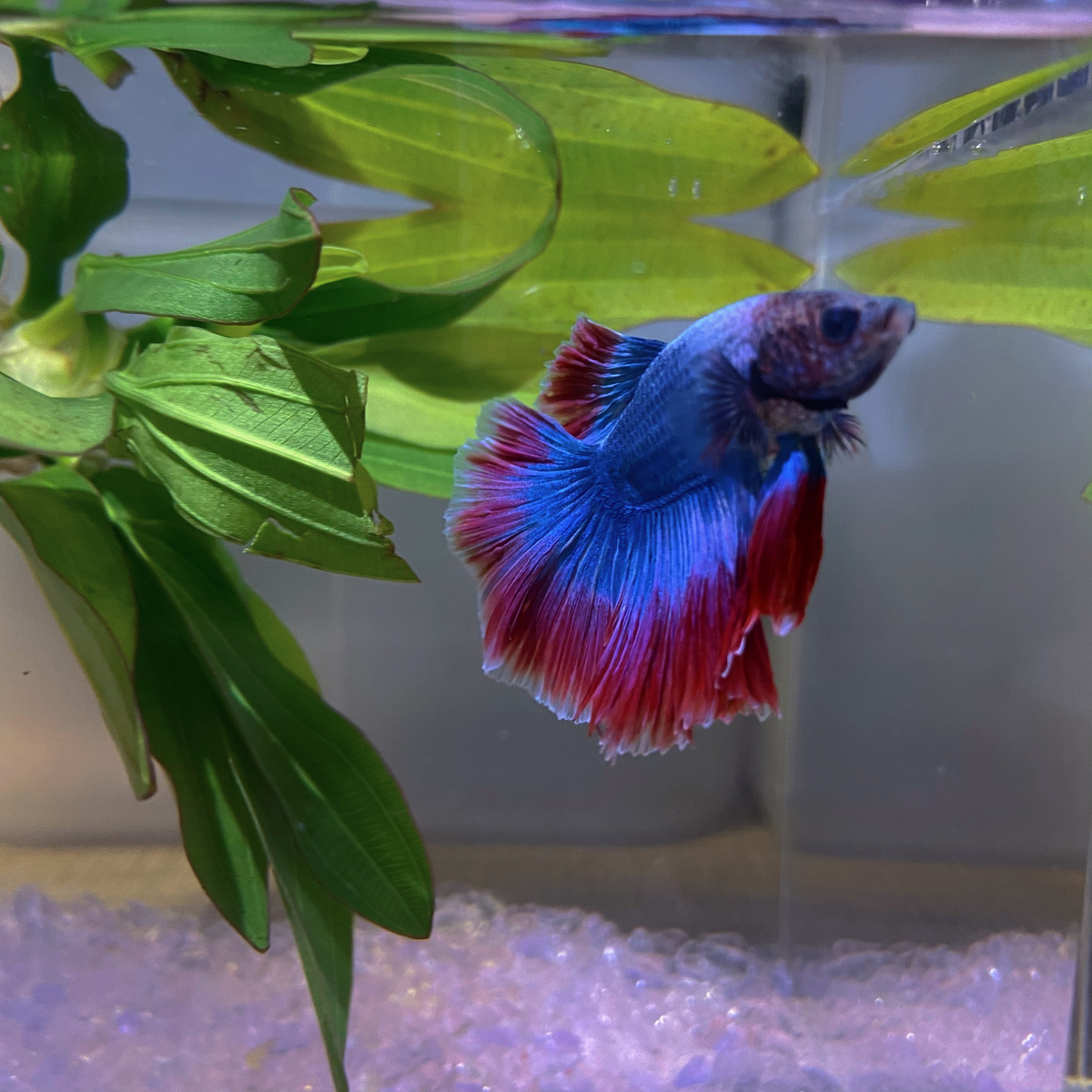
What are the joys of raising betta?
Bettas have unique personalities, and you can foster these qualities in your fish by allowing them to do things on their own. For example, you can teach a betta to jump out of the water and feed from your hand, or you can hand-feed your betta in the tank. Keeping your betta entertained is essential for its health, and will ensure that you get the greatest joy out of your new pet.
The first pleasure in raising a betta is fostering its unique personality. While these fish are naturally aggressive towards other fish, they do not have a problem with people. With patience, your fish will learn tricks and will play with their toys and snacks. They are highly intelligent and love to eat live foods. Pellets get boring quickly and are not challenging enough. Using live foods will stimulate their natural hunting instincts.
As with any aquatic pet, betta needs proper care. The betta fish tank needs to be large enough to accommodate multiple species of bettas. The smallest aquarium may be too small for a betta. Eventually, the betta will become bored with its tank and will seek out other species to make the tank more exciting. But to maintain the optimal health of your cherished betta, you should increase the size of your tank by 5-8 gallons or choose a larger aquarium, improve your filtration system and add additional plants to your betta’s habitat.
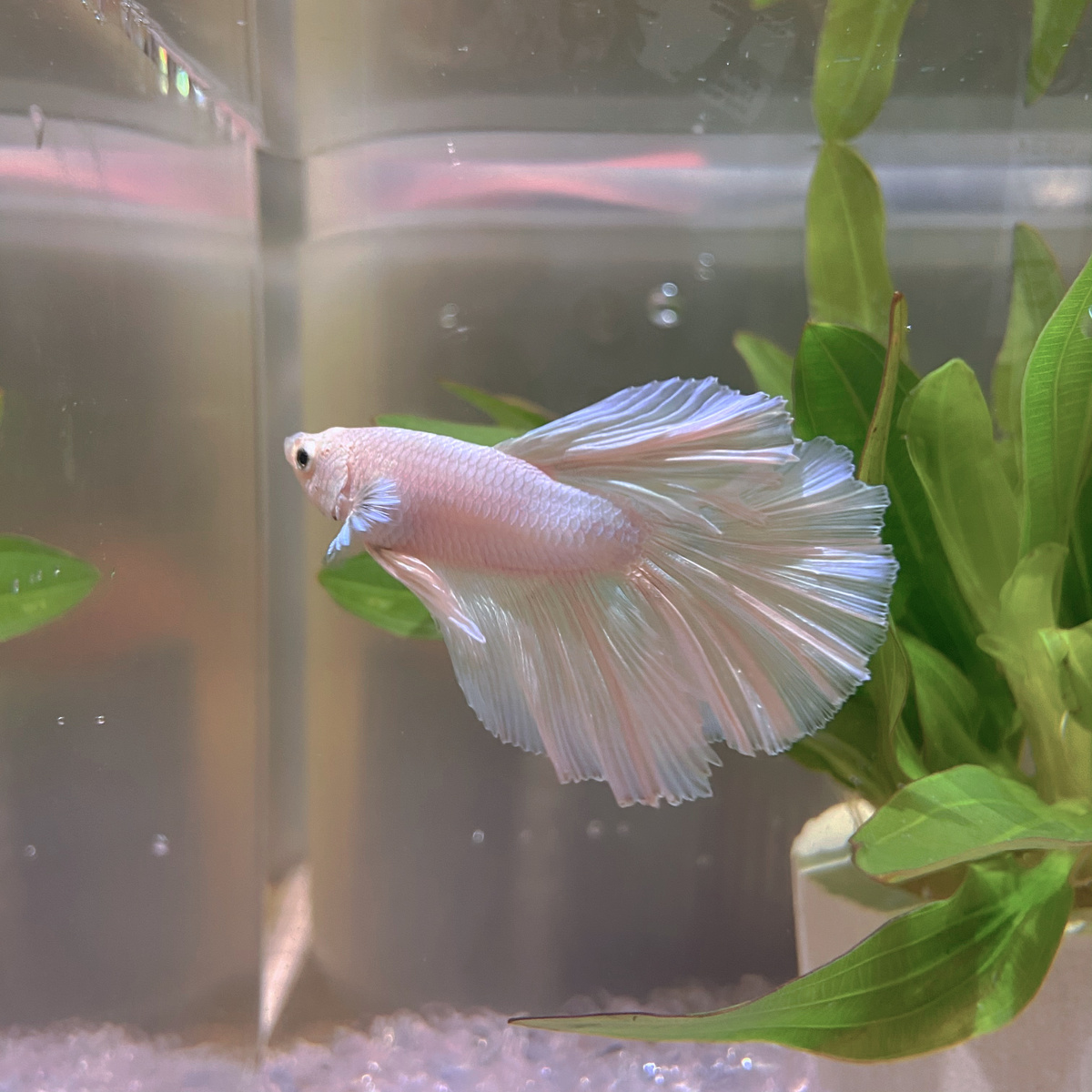
What are the cute behaviors of a trained betta?
A betta can learn simple tricks, like swimming through a hoop or flaring on command. You can use classical conditioning to make your betta learn these tricks. The first thing you need to do is give your fish a mirror, which triggers a territorial response. Repeat for a few days, and then switch the mirror to an ordinary object, such as a pair of car keys. You want your betta to associate the flare with the key, so you can easily switch them back and forth.
You can also train your betta to recognize your voice. Place a pen in front of the tank, when he flares, praise him for it. If he does this repeatedly, you can move the pen back to the tank, and repeat this process with another betta. Once your betta learns to associate the pen with your voice, you can start a training routine that includes a few simple tricks.
When you first get your betta, you can begin teaching him to jump out of the water. This is a great way to make him feel more secure, and he will also be able to see through the glass. It’s also important to remember that bettas are semiaquatic animals that live in freshwater. In the wild, they ambush insects, so they’re accustomed to smelling food. This makes them excellent candidates for training.
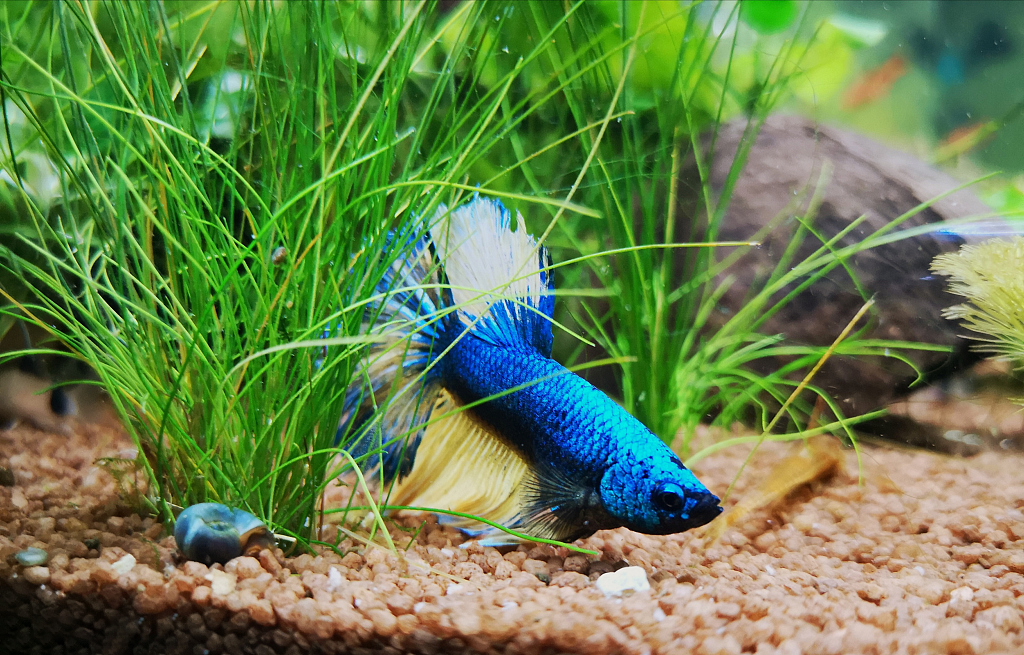
How to train a betta daily
Jump out of the water
Before teaching your betta to jump out of the water, make sure he gets acquainted with you. It may take a few weeks for him to learn to identify you from other bettas in the aquarium. After that, you can begin to train him to respond to your touch by swimming up to you when you approach the glass. Once you have become a familiar face in his aquarium, he will be more likely to jump up to you when you come around.
One of the most important things to remember while training a betta is to keep in mind that a routine is essential. The more interaction the fish gets regularly, the more responsive it will be. This is especially true for small fish such as bettas. When betta is used to interacting with its caretaker daily, it will be easier for it to learn new tricks.
Food Target
The simplest way to train a betta to be more responsive is to make it a food target. Putting a stick in the tank will trigger a reflexive response in the fish and will encourage them to follow your finger. If you use your finger, you can also encourage them to jump when you touch them. By doing this, you can easily make patterns and get them to flip in the tank.
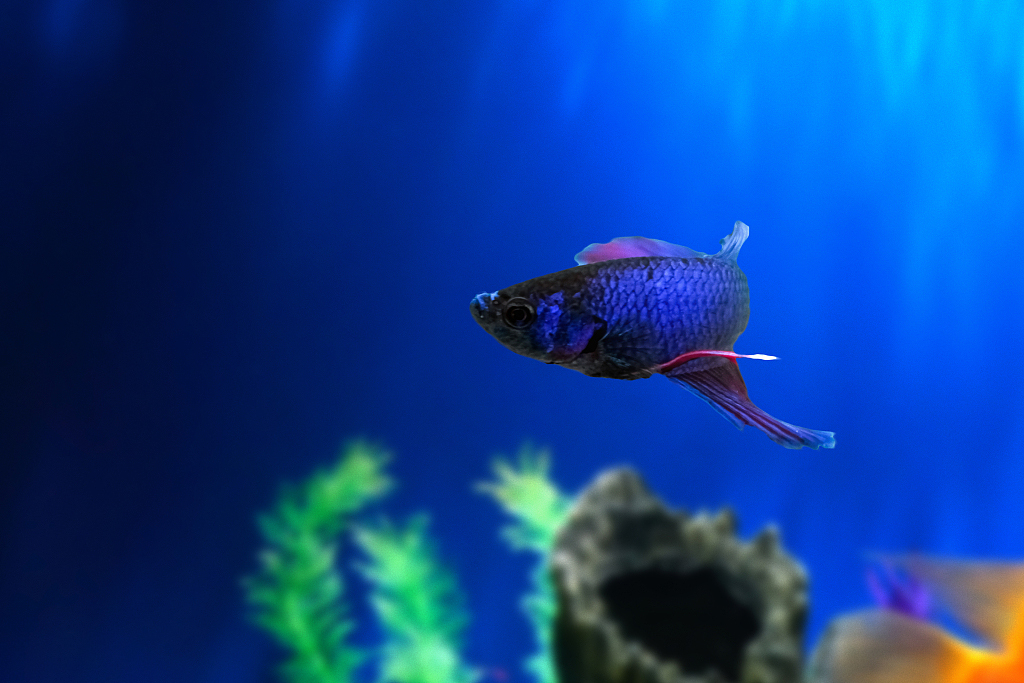
How to help female betta make a bubble nest when female betta has eggs
If you want your betta to breed, you need to provide him with the right environment. In captivity, mating is impossible, and male bettas must be acclimatized to the new environment. The right humidity and air condition are essential for successful breeding. A quarantine bowl can be placed on top of your betta’s aquarium, with half the water level covered. Then, seed the bowl with a few sperm, eggs, and a few small pieces of fish food.
After the female betta has finished mating, you can give her a floating aquarium plant or a styrofoam cup cut lengthwise. If you want the male to be motivated to build a bubble nest, try to add a female betta to the tank. A female can be a good motivation and kick the male’s mating instinct.
The optimum temperature for a betta’s tank is 78 to 82 degrees Fahrenheit, and the filtration speed must be set to a minimum so that bubbles can form inside. A decorative surface is also essential. A male betta’s nest will be large enough to hold two or three eggs, so you should make sure your betta’s tank is large enough for both.
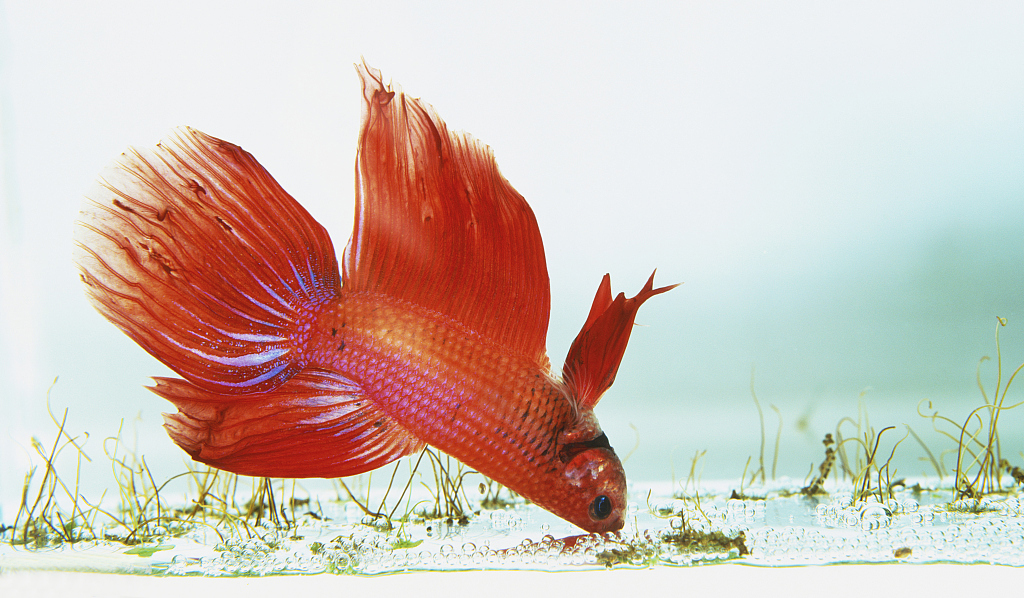
Is it easier to train a betta fish than a cat or dog?
Training a betta fish is no easier than training a cat or dog — a common household pet. Many people may have the impression that betta fish is impossible to train, and it is common to think of fish as ornamental animals stationary in a tank, that require less emotion than cats and dogs. But in fact, some fish have changed completely since they came to the aquarium from their original living environment, including their original untrained nature.
In addition to basic feeding and care, their needs for human nurturing have shifted more to higher-order emotions, especially betta fish. If you have a betta fish, don’t forget to communicate with it every day across the tank. Betta fish need to communicate with humans, they need to feel the care and love from you, and they need your attention.
Betta fish are not easy to train, but that doesn’t mean they can’t be trained.
What you may not know is that a betta fish is a smart fish, and it is no less smart than a cat or a dog. If humans can train a cat or a dog with ease, why can’t they train a betta fish? If you don’t know how to train a betta fish, you can refer to the methods mentioned above in this article, which should more or less help you in training. But please do remember: the most important thing is that you should have confidence in your training of betta fish, you have to believe that you can do it and that no one can do it well instead of you. Without confidence, it is very difficult to do even the most basic training.
Anyway, try to train your betta fish! Why not start today?
